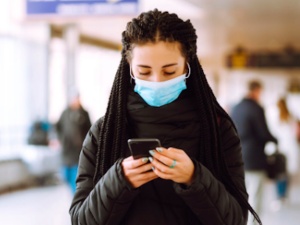Displaying items by tag: alert
Download the COVID Alert NJ App
COVID Alert NJ is New Jersey's free and secure mobile app that anonymously alerts users if they have been in close contact with someone who has tested positive for COVID-19. The app also provides users with up-to-date information on New Jersey reopening news, key COVID-19 metrics, and a user-friendly symptom tracking tool. COVID Alert NJ uses Bluetooth proximity technology. The app will never record any identifying data. All users will remain anonymous. When your app senses a close contact, your phone will exchange a secure random code with the close contact's phone. Each day, the app will compare your list of close contact codes to the list of codes associated with positive COVID-19 app users. If there's a match you will get an Exposure Alert, along with appropriate next steps. It's important to note that your location and name are never disclosed
NJ Issues Lantern Fly Alert
This is the time of the year when the female adult Spotted Lanternfly starts to lay egg masses. Locating and destroying egg masses, as well as destroying adult Spotted Lanternflies, can help prevent the spread of this invasive pest. For instructions on how to scrape and destroy egg masses, you can watch this video. An adult female Spotted Lanternfly can lay up to three egg masses during its life cycle, and each egg mass contains between 30 and 50 eggs. While the adult Spotted Lanternfly cannot survive the winter, the egg masses do survive and hatch in the spring. The Department of Agriculture is asking homeowners to help in the effort to curb this invasive pest. What can you do to help? Join The Battle to report, identify and manage to "Beat the Bug”. This insect is an excellent hitchhiker and is easily moved if no one is looking so, if you are in the quarantine area, please “Look Before You Leave.” You can get more information through this Penn State Extension and here are also some safe treatment options.



